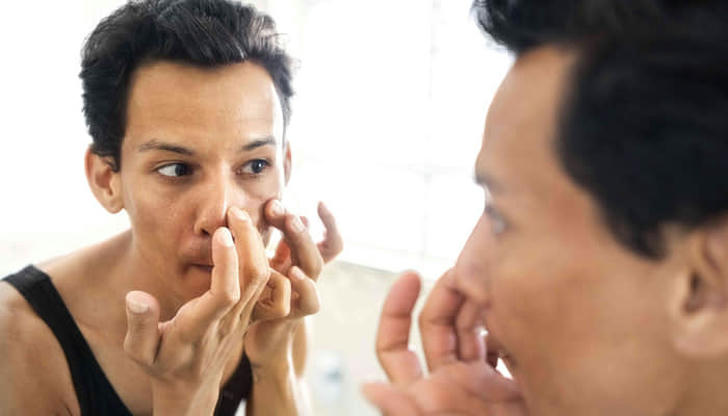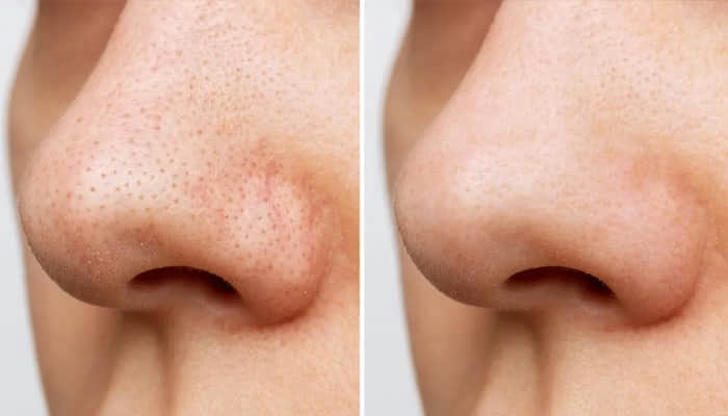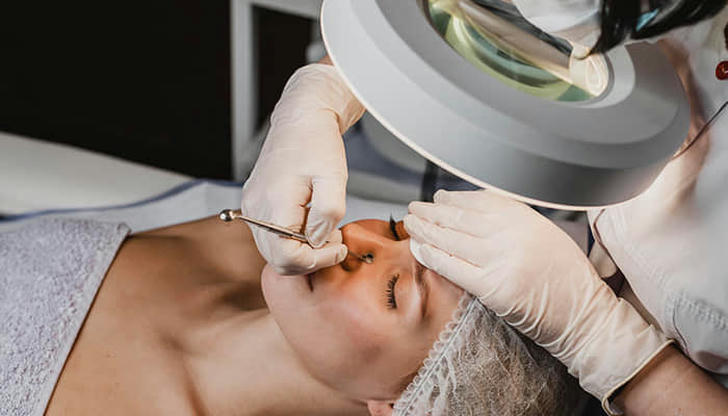Say Goodbye to Blackhead Woes: Everything You Need to Know

I believe that everyone deserves to have confident and beautiful skin, but the issue of blackheads has troubled many of us. As someone who has suffered from blackheads in the past, I want to share my experiences and insights on how to get rid of them. I believe that through this article, you'll find the right methods to tackle blackheads and regain your confident and radiant appearance!
How do blackheads form?
Blackheads are formed when the sebaceous glands produce excessive oil, combined with abnormal shedding of dead skin cells, leading to clogged pores. When the oil on the skin's surface comes into contact with air, the melanin in the oil oxidizes, turning black, forming what we call blackheads. According to data from the American Academy of Dermatology, about 50% of Americans have experienced blackhead issues, which typically occur during adolescence, especially due to changes in hormone levels, which significantly increase sebaceous gland activity.
For example, during puberty, adolescents experience a rise in androgen levels, causing their sebaceous glands to produce more oil. Studies show that males have about 20% to 30% higher oil production than females during puberty. Additionally, genetic factors can influence a person's susceptibility to blackheads. If a family member has had severe blackhead or acne problems, other family members may face similar challenges.
Why do blackheads keep coming back?
The recurrence of blackheads is closely related to the continuous secretion of oil by the sebaceous glands. Improper diet, inadequate cleansing, and the use of oily cosmetics can exacerbate this problem. Research has found that consuming a high-sugar and high-fat diet may lead to increased sebum production, thereby promoting blackhead formation. For instance, some studies suggest that drinking milk and high-sugar beverages may be associated with an increase in adolescent acne.
Furthermore, many people overlook the importance of thorough cleansing in their daily skincare routine, leading to the accumulation of oil and dead skin cells in the pores. Dermatologists recommend regular exfoliation and the use of salicylic acid-containing products to effectively reduce blackhead formation. According to a survey, about 70% of users reported a significant reduction in blackheads after using salicylic acid-based skincare products.

Methods for Removing Blackheads
Which products are effective for removing blackheads?
Common blackhead removal products include those containing salicylic acid, alpha hydroxy acids, and retinoids. These ingredients help dissolve the oil and dead skin cells clogging the pores, promoting cell renewal. Salicylic acid is a lipid-soluble ingredient that can penetrate deep into the pores to remove blockages. Using a salicylic acid-containing blackhead scrub can significantly reduce the number of blackheads, and users experience a 30% improvement in skin smoothness within a week of use.

What is the difference between physical and chemical blackhead removal?
Physical blackhead removal methods, such as using blackhead extractors or peel-off masks, may cause skin damage, especially when done improperly, leading to inflammation or scarring. On the other hand, chemical blackhead removal methods penetrate the pores through their ingredients, typically being gentler and more effective. Research shows that users of chemical exfoliants have a 40% lower blackhead formation rate compared to those using physical exfoliants.

Precautions for Use
What should you pay attention to when using blackhead removal products?
When using blackhead removal products, it is important to avoid high concentrations of exfoliating ingredients, such as salicylic acid and alpha hydroxy acids, to prevent skin irritation. According to a study, 40% of users experienced mild irritation symptoms, such as redness and dryness, when using products containing more than 5% salicylic acid.
Therefore, it is advisable to start with lower concentrations, around 2%, and observe how your skin reacts. If there are no noticeable adverse effects, you can gradually increase the concentration. Additionally, be mindful of the frequency of use. Generally, 2-3 times per week is recommended to avoid over-exfoliating and damaging the skin barrier.
How can you avoid skin damage after blackhead removal?
When removing blackheads, avoid frequently squeezing them or using unclean tools, as this can lead to skin damage and infection.
It is recommended to seek professional guidance for blackhead removal, such as from a dermatologist or licensed aesthetician. They can choose appropriate methods based on your skin type, such as chemical exfoliation or light therapy, to minimize skin damage. Additionally, when caring for your skin at home, ensure that your hands and tools are clean and hygienic.

Daily Care Recommendations
How does daily diet affect blackheads?
Dietary habits can significantly impact sebum production and the formation of blackheads. Research has found that individuals who frequently consume high-fat and high-sugar foods have a 20% higher incidence of blackheads compared to others.
Therefore, it is advisable to adopt a lighter diet, including fresh fruits and vegetables and whole grains, while reducing the intake of high-fat and high-sugar foods. This can effectively lower sebum production and prevent the formation of blackheads. Additionally, incorporating nutrients such as vitamin A and zinc can also help improve skin condition.
How can you establish good skincare habits?
Cleansing the skin adequately each day while avoiding over-cleansing is crucial for preventing blackheads. A survey revealed that 75% of people believe that washing their face more frequently is better; however, frequent washing can damage the skin barrier and actually increase blackhead formation. It is recommended to wash your face twice a day, once in the morning and once at night, using a gentle cleanser, and to exfoliate regularly to maintain skin cleanliness.
Furthermore, maintaining the integrity of the skin barrier is important; avoid using harsh products and choose skincare products that are suitable for your skin type. Good dietary habits and proper sleep also contribute to improving skin condition and reducing blackhead formation.
